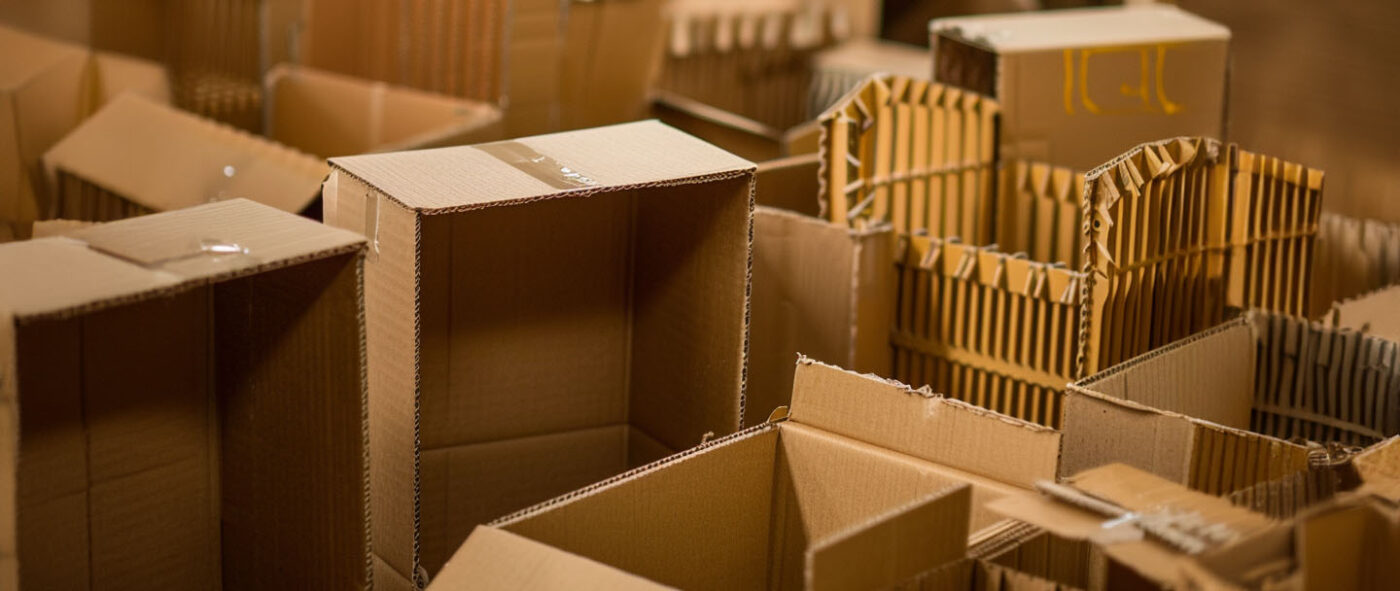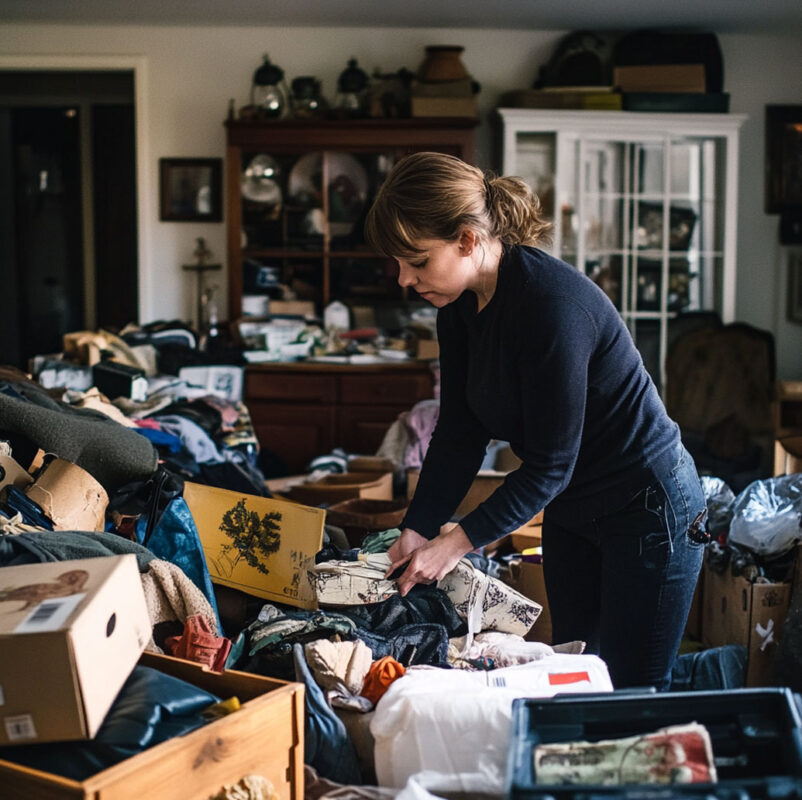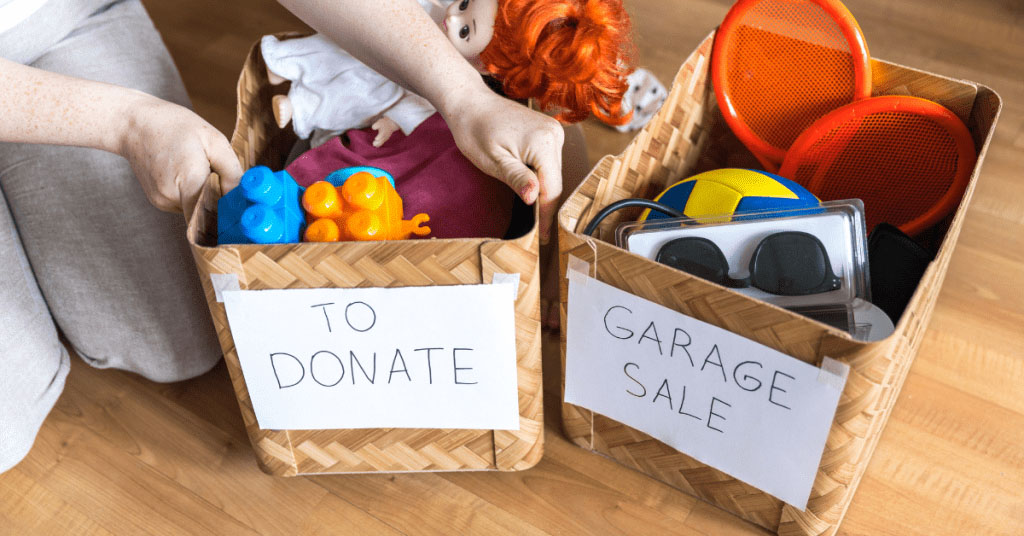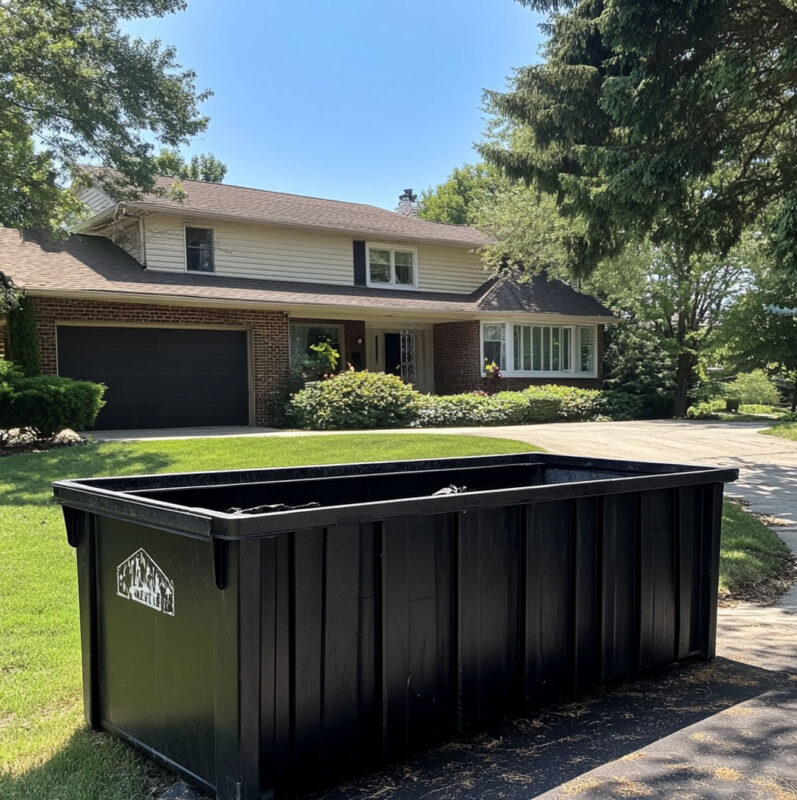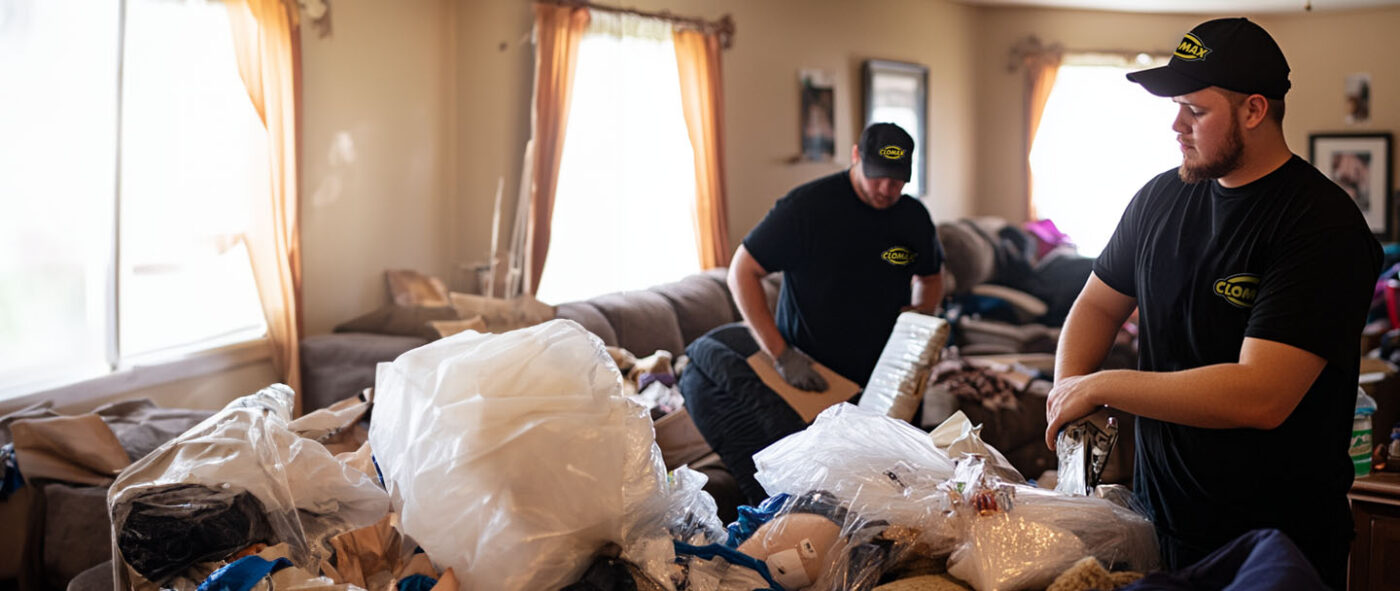8 Tips For Estate Cleanouts And Estate Cleanout Services
A DIY Guide to Estate Cleanouts: How to Handle It Yourself in 8 Steps. Everything You Need To Know.
Get Started
STEP 1. Create a Detailed Plan and Timeline
Estate cleanouts are often complex, so the first step is to develop a clear and comprehensive plan. Before sorting through belongings, take time to assess your project's scope. Here’s how you can approach planning:
- Walk through the property: Take a tour of each room and make note of any areas that will require special attention, such as attics, basements, garages, or storage sheds. These areas often hold large, bulky items or forgotten belongings that can take time to sort.
- Gather and organize all essential financial documents. Be sure to locate and secure any wills, trusts, and related paperwork. Look for life insurance policies, real estate deeds, and property titles. If recent bank statements aren't available at home, obtain them from the bank. Keep any stock certificates, 401(k) records, and tax returns, as these may be needed when filing income tax returns.
- Set goals for each area: Break the project down by room or section of the house. For example, you might aim to clean out one room per weekend or dedicate two hours each evening to sorting belongings.
- Establish a timeline: Be realistic about how long the project will take. Depending on the size of the home and how full it is, estate cleanouts can take anywhere from a few days to several weeks and in some cases several months. This will also vary depending on the amount of helping hands you have. It’s crucial to enlist all the help you can get—the more hands, the better! Whether you recruit friends and family or hire help, extra assistance will make a big difference! Set a completion date, but be flexible—life happens, and estate cleanouts often take longer than expected.
+790 thousand
2 to 6 weeks
59%
Estimate of DIY estate cleanouts.
20-30%
Individuals who begin an estate cleanout on their own ultimately hire professionals to finish the job.
STEP 2. Gather Supplies, Tools, and Resources
The right supplies and tools will make the process smoother and more efficient. Here’s a more detailed list of what you’ll need for a successful cleanout:
- Trash bags and boxes: Heavy-duty trash bags for discarded items, and sturdy boxes for sorting items you plan to keep, donate, or sell. TIP: If you have heavy items to remove like wood, tile, or any construction debris you will need contractor bags. For most, drum liners will do.
- Labels and markers: Labeling boxes is crucial to staying organized. Use markers or colored stickers to categorize items (e.g., Keep, Donate, Sell, Trash, Recycling).
- Protective gear: Gloves, masks, and safety goggles, especially if you’ll be handling old or dusty items, cleaning out basements or attics, or dealing with hazardous materials.
- Cleaning supplies: Brooms, mops, vacuum cleaners, all-purpose cleaners, dusters, and disinfectants will help you thoroughly clean the home.
- Basic tools: A toolbox with essentials like screwdrivers, hammers, and wrenches can help with disassembling large furniture or removing fixtures.
- Dollies and moving blankets: These will be essential if you’re removing heavy furniture or appliances from the home. They reduce the strain on your body and prevent damage to floors and walls.
- Rental dumpsters or haul-away services: If you anticipate a large volume of trash or unusable items, it may be worth renting a dumpster or scheduling a junk removal service in advance.
STEP 3. Tackle One Room at a Time
Estate cleanouts can feel overwhelming, especially when a lifetime of possessions is involved. The key to staying focused is to break the job into smaller, manageable chunks by tackling one room at a time. Here's how to approach each room:
- Start with smaller, non-sentimental rooms: Begin with areas like guest rooms, bathrooms, or storage closets. These spaces are typically less emotionally charged, which allows you to gain momentum without becoming overwhelmed.
- Set up sorting stations: Designate boxes or bags for each—Keep, Sell, Donate, Trash, and Recycle. As you go through each item, place it in the appropriate box. Be decisive but thoughtful—don't spend too much time debating over every item, especially in less important rooms.
Tip: Streamline Emotional Decision-Making When sorting through belongings, it can be emotionally taxing to deliberate over every item, especially those that hold sentimental value. To make the process more manageable, consider the following approach: Set a Time Limit for Decisions: As you go through items, if you hesitate for more than a few seconds on what to do with something, set it aside. Don’t allow yourself to get bogged down by every emotionally charged item. Instead, create a designated “To Decide Later” box for these items. After you’ve completed the initial sorting process, revisit this box all at once. This method allows you to focus on each item without getting overwhelmed, helping to compartmentalize your emotional responses. When you’re ready to tackle these items later, you can do so with a clearer mindset and perhaps with family members who can provide support and perspective.
- Handle larger rooms and storage spaces later: Once you’ve cleared out smaller rooms, you’ll have more energy and experience to tackle larger, more complex spaces like the kitchen, garage, or attic.
- Give yourself permission to take breaks: Sorting through a loved one’s belongings is emotionally draining, so take regular breaks and step away when you need to. This is especially important in rooms with personal or sentimental items, like bedrooms or living rooms.
STEP 4. Handle Sentimental Items Thoughtfully and Deliberately
- Create a “To decide later” for later: If you come across items you’re not ready to make decisions about, put them in a "To decide later" box. This way, you can continue the cleanout without getting stuck on emotionally charged decisions. Revisit the box when you’re ready.
- Involve family members: If other family members want to be involved, it’s important to give everyone a chance to keep sentimental items that are meaningful to them. You can set aside a time to go through these items together, which can also serve as a way to share memories and honor your loved one.
- Digitize important documents and photos: For items like old photos or letters that you don’t want to keep in physical form, consider digitizing them. Scanning documents or taking digital photos will preserve the memories without the need for additional storage space.
- Set boundaries: While it’s important to be respectful of your loved one’s possessions, don’t feel obligated to keep everything. Choose a few key items that hold special meaning and give yourself permission to let go of the rest.
STEP 5. Sell, Donate, or Recycle Unwanted Items
After sorting through the estate, you’ll likely have a pile of items that aren’t necessary to keep. Before throwing things away, consider selling or donating items in good condition. Here’s how to responsibly deal with unwanted possessions:
- Sell valuable items: Estate sales, garage sales, and online marketplaces (e.g., eBay, Craigslist, Facebook Marketplace) are great options for selling valuable or collectible items. Consider getting an appraisal for antiques, jewelry, or artwork to ensure you’re getting a fair price. You can also call auctioneers in your area. They will list items for you online for a percentage of the sale.
- Donate usable items: Charities, shelters, and thrift stores often accept donations of gently used furniture, clothing, and household goods. Some organizations, like Habitat for Humanity or Goodwill, offer free pickup services for large items.
- Recycle electronics and hazardous materials: Electronic waste (e.g., old TVs, computers, phones) should be taken to an e-waste recycling center to avoid harmful environmental impact. Similarly, dispose of hazardous materials like paints, batteries, or cleaning products at a local hazardous waste facility.
STEP 6. Dispose of Junk and Rubbish Responsibly
At the end of your cleanout, you’ll be left with items that can’t be sold, donated, or recycled. Proper disposal is key to keeping the process efficient and environmentally friendly. Here are some disposal options:
- Bulk trash collection: Many municipalities offer bulk trash pickup for larger items, like mattresses, furniture, or appliances. Contact your local waste management company to schedule a pickup or find out when the next collection day is.
- Rent a dumpster: If the cleanout involves a large amount of debris or unwanted items, renting a dumpster can simplify the disposal process. You can fill it as you go, and the rental company will haul it away at the end.
Junk removal services: If handling disposal feels like too much, consider hiring a junk removal service. They can manage everything from the removal and hauling large items to ensuring that items are disposed of according to local regulations.
STEP 7. Deep Clean the Property
After the estate has been cleared, the final step is to thoroughly clean the property. A pristine home is especially important if it's being readied for sale or rental.
- Deep clean each room: Vacuum or mop all floors, wipe down surfaces, and dust ceiling fans, blinds, and baseboards. Pay attention to corners and hidden areas that may not have been cleaned in a while.
- Clean out appliances: If the property includes appliances, clean them inside and out. This is especially important for the kitchen, where grease and grime tend to accumulate.
- Check the exterior: Don’t forget about the yard, garage, or exterior storage spaces. Mow the lawn, trim bushes, and clean up any outdoor debris to improve curb appeal.
- Consider professional help: If the estate is large or the property hasn’t been maintained in a while, hiring a professional cleaning service can help ensure the home is move-in or sale-ready.
STEP 8. Deciding if you should use professionals
- Time and Efficiency
- DIY: Estate cleanouts can be time-consuming, especially when balancing a busy schedule or dealing with emotional ties to the belongings. A DIY approach may take several weekends, weeks or even months, depending on the size of the estate and how much help you have.
- Professional Services: Hiring a junk removal and cleaning company speeds up the process significantly. Professionals can handle the cleanout in a fraction of the time it would take to do it yourself, often completing the job in just a few days. These services bring in a team of experienced workers, allowing them to manage large tasks quickly and efficiently.
- Expertise and Specialized Equipment
- DIY: While you can rent tools and gather basic supplies, estate cleanouts often involve heavy lifting, disassembling large furniture, and handling hazardous materials. Without specialized equipment (like industrial-grade dollies or waste disposal trucks), the work can be physically demanding and difficult to manage.
- Professional Services: Junk removal companies are equipped with the right tools, machinery, and expertise to handle large, bulky items such as appliances, pianos, or sofas. They know how to safely disassemble and move heavy furniture without damaging the property. Additionally, professional cleaners have specialized equipment and techniques to deep-clean a property more effectively than standard household tools.
- Disposal and Environmental Responsibility
- DIY: When cleaning out an estate on your own, you’re responsible for disposing of all the junk, recyclables, and potentially hazardous materials. This can involve multiple trips to landfills, recycling centers, or hazardous waste disposal sites. Improper disposal can also lead to fines or environmental damage.
- Professional Services: Junk removal companies often have partnerships with recycling centers and charities, ensuring that usable items are donated and recyclables are processed properly. Many services focus on eco-friendly disposal, meaning less waste ends up in landfills. They also know how to properly handle hazardous materials, electronics, and chemicals, ensuring they are disposed of safely and legally.
- Emotional and Physical Burden
- DIY: Estate cleanouts can be emotionally taxing, especially when you’re sorting through a loved one’s personal belongings. This emotional strain can slow down the process, and it can also take a physical toll if the cleanout involves heavy lifting, dust, or allergens. Additionally, some DIYers might underestimate the amount of labor involved, especially in larger estates.
- Professional Services: By hiring a service, you can ease the emotional and physical burden. Professionals can handle the labor-intensive parts of the job, while you focus on deciding which items to keep. Many people find that having a professional service handle the bulk of the work allows them to process their grief and focus on more personal aspects of the estate.
- Customization and Comprehensive Services
- DIY: With a DIY cleanout, you are entirely responsible for every part of the process—sorting, lifting, transporting, and cleaning. You need to organize resources and coordinate any necessary help, such as friends or family members.
- Professional Services: Many junk removal companies offer comprehensive services, from clearing out rooms to deep cleaning the property. They can tailor their services to meet your needs, whether you want full cleanout services, partial assistance, or just help with heavy lifting. Some companies even offer estate cleanout packages, which may include junk removal, deep cleaning, and property staging if you plan to sell the home.
- Stress and Convenience
- DIY: While DIY estate cleanouts can save money, they come with added stress. Coordinating logistics, handling transportation, renting tools, and learning disposal regulations all require time and effort. If you’re already feeling overwhelmed, the stress of managing these details can become difficult.
- Professional Services: Hiring professionals offers convenience and peace of mind. The company handles every aspect of the cleanout, from hauling away junk to ensuring the property is cleaned and ready for sale or rental. You don’t have to worry about logistics, and you can focus on more personal aspects of the process, such as organizing keepsakes or spending time with family.
- Have a large property or significant amount of junk to remove
- Are short on time or unable to take on the physical labor involved
- Need help with responsible disposal of hazardous materials or large items
- Want the property cleaned thoroughly for resale or rental
- Prefer to avoid the emotional or physical burden of handling everything yourself
Make new connections
Junk Removal & Move-In/Out Cleaning Services
At Clomax, we believe that building strong relationships with our clients is just as important as delivering top-notch junk removal services. By understanding your unique needs, we strive to provide personalized solutions that not only clear out unwanted items but also make room for new possibilities. Whether it's a one-time service or ongoing cleanouts, we’re here to create connections that matter, ensuring each project is completed with care, efficiency, and a focus on sustainability. Let’s make new connections today and transform your space together.
[bafg id="12431"]
See the dramatic change as this living room is cleared of all belongings during an estate cleanout. The before-and-after images highlight the complete transformation, turning a cluttered space into a blank slate, ready for new beginnings.
[bafg id="12438"]
Observe the striking difference in this living room after a thorough estate cleanout. The before image shows a room filled with years of memories, while the after image reveals a fresh, empty space, cleared and prepared for its next chapter.
[bafg id="12442"]
See the difference in this apartment living room after a sensitive estate cleanout. While some personal items remain, the space has been thoughtfully cleared and reorganized, making it more manageable and comfortable for the resident to continue living in..
8 Tips For Estate Cleanouts And Estate Cleanout Services
A DIY Guide to Estate Cleanouts: How to Handle It Yourself in 8 Steps. Everything You Need To Know.
Get Started
STEP 1. Create a Detailed Plan and Timeline
Estate cleanouts are often complex, so the first step is to develop a clear and comprehensive plan. Before sorting through belongings, take time to assess your project's scope. Here’s how you can approach planning:
- Walk through the property: Take a tour of each room and make note of any areas that will require special attention, such as attics, basements, garages, or storage sheds. These areas often hold large, bulky items or forgotten belongings that can take time to sort.
- Gather and organize all essential financial documents. Be sure to locate and secure any wills, trusts, and related paperwork. Look for life insurance policies, real estate deeds, and property titles. If recent bank statements aren't available at home, obtain them from the bank. Keep any stock certificates, 401(k) records, and tax returns, as these may be needed when filing income tax returns.
- Set goals for each area: Break the project down by room or section of the house. For example, you might aim to clean out one room per weekend or dedicate two hours each evening to sorting belongings.
- Establish a timeline: Be realistic about how long the project will take. Depending on the size of the home and how full it is, estate cleanouts can take anywhere from a few days to several weeks and in some cases several months. This will also vary depending on the amount of helping hands you have. It’s crucial to enlist all the help you can get—the more hands, the better! Whether you recruit friends and family or hire help, extra assistance will make a big difference! Set a completion date, but be flexible—life happens, and estate cleanouts often take longer than expected.
+790 thousand
2 to 6 weeks
59%
Estimate of DIY estate cleanouts.
20-30%
Individuals who begin an estate cleanout on their own ultimately hire professionals to finish the job.
STEP 2. Gather Supplies, Tools, and Resources
The right supplies and tools will make the process smoother and more efficient. Here’s a more detailed list of what you’ll need for a successful cleanout:
- Trash bags and boxes: Heavy-duty trash bags for discarded items, and sturdy boxes for sorting items you plan to keep, donate, or sell. TIP: If you have heavy items to remove like wood, tile, or any construction debris you will need contractor bags. For most, drum liners will do.
- Labels and markers: Labeling boxes is crucial to staying organized. Use markers or colored stickers to categorize items (e.g., Keep, Donate, Sell, Trash, Recycling).
- Protective gear: Gloves, masks, and safety goggles, especially if you’ll be handling old or dusty items, cleaning out basements or attics, or dealing with hazardous materials.
- Cleaning supplies: Brooms, mops, vacuum cleaners, all-purpose cleaners, dusters, and disinfectants will help you thoroughly clean the home.
- Basic tools: A toolbox with essentials like screwdrivers, hammers, and wrenches can help with disassembling large furniture or removing fixtures.
- Dollies and moving blankets: These will be essential if you’re removing heavy furniture or appliances from the home. They reduce the strain on your body and prevent damage to floors and walls.
- Rental dumpsters or haul-away services: If you anticipate a large volume of trash or unusable items, it may be worth renting a dumpster or scheduling a junk removal service in advance.
STEP 3. Tackle One Room at a Time
Estate cleanouts can feel overwhelming, especially when a lifetime of possessions is involved. The key to staying focused is to break the job into smaller, manageable chunks by tackling one room at a time. Here's how to approach each room:
- Start with smaller, non-sentimental rooms: Begin with areas like guest rooms, bathrooms, or storage closets. These spaces are typically less emotionally charged, which allows you to gain momentum without becoming overwhelmed.
- Set up sorting stations: Designate boxes or bags for each—Keep, Sell, Donate, Trash, and Recycle. As you go through each item, place it in the appropriate box. Be decisive but thoughtful—don't spend too much time debating over every item, especially in less important rooms.
Tip: Streamline Emotional Decision-Making When sorting through belongings, it can be emotionally taxing to deliberate over every item, especially those that hold sentimental value. To make the process more manageable, consider the following approach: Set a Time Limit for Decisions: As you go through items, if you hesitate for more than a few seconds on what to do with something, set it aside. Don’t allow yourself to get bogged down by every emotionally charged item. Instead, create a designated “To Decide Later” box for these items. After you’ve completed the initial sorting process, revisit this box all at once. This method allows you to focus on each item without getting overwhelmed, helping to compartmentalize your emotional responses. When you’re ready to tackle these items later, you can do so with a clearer mindset and perhaps with family members who can provide support and perspective.
- Handle larger rooms and storage spaces later: Once you’ve cleared out smaller rooms, you’ll have more energy and experience to tackle larger, more complex spaces like the kitchen, garage, or attic.
- Give yourself permission to take breaks: Sorting through a loved one’s belongings is emotionally draining, so take regular breaks and step away when you need to. This is especially important in rooms with personal or sentimental items, like bedrooms or living rooms.
STEP 4. Handle Sentimental Items Thoughtfully and Deliberately
- Create a “To decide later” for later: If you come across items you’re not ready to make decisions about, put them in a "To decide later" box. This way, you can continue the cleanout without getting stuck on emotionally charged decisions. Revisit the box when you’re ready.
- Involve family members: If other family members want to be involved, it’s important to give everyone a chance to keep sentimental items that are meaningful to them. You can set aside a time to go through these items together, which can also serve as a way to share memories and honor your loved one.
- Digitize important documents and photos: For items like old photos or letters that you don’t want to keep in physical form, consider digitizing them. Scanning documents or taking digital photos will preserve the memories without the need for additional storage space.
- Set boundaries: While it’s important to be respectful of your loved one’s possessions, don’t feel obligated to keep everything. Choose a few key items that hold special meaning and give yourself permission to let go of the rest.
STEP 5. Sell, Donate, or Recycle Unwanted Items
After sorting through the estate, you’ll likely have a pile of items that aren’t necessary to keep. Before throwing things away, consider selling or donating items in good condition. Here’s how to responsibly deal with unwanted possessions:
- Sell valuable items: Estate sales, garage sales, and online marketplaces (e.g., eBay, Craigslist, Facebook Marketplace) are great options for selling valuable or collectible items. Consider getting an appraisal for antiques, jewelry, or artwork to ensure you’re getting a fair price. You can also call auctioneers in your area. They will list items for you online for a percentage of the sale.
- Donate usable items: Charities, shelters, and thrift stores often accept donations of gently used furniture, clothing, and household goods. Some organizations, like Habitat for Humanity or Goodwill, offer free pickup services for large items.
- Recycle electronics and hazardous materials: Electronic waste (e.g., old TVs, computers, phones) should be taken to an e-waste recycling center to avoid harmful environmental impact. Similarly, dispose of hazardous materials like paints, batteries, or cleaning products at a local hazardous waste facility.
STEP 6. Dispose of Junk and Rubbish Responsibly
At the end of your cleanout, you’ll be left with items that can’t be sold, donated, or recycled. Proper disposal is key to keeping the process efficient and environmentally friendly. Here are some disposal options:
- Bulk trash collection: Many municipalities offer bulk trash pickup for larger items, like mattresses, furniture, or appliances. Contact your local waste management company to schedule a pickup or find out when the next collection day is.
- Rent a dumpster: If the cleanout involves a large amount of debris or unwanted items, renting a dumpster can simplify the disposal process. You can fill it as you go, and the rental company will haul it away at the end.
Junk removal services: If handling disposal feels like too much, consider hiring a junk removal service. They can manage everything from the removal and hauling large items to ensuring that items are disposed of according to local regulations.
STEP 7. Deep Clean the Property
After the estate has been cleared, the final step is to thoroughly clean the property. A pristine home is especially important if it's being readied for sale or rental.
- Deep clean each room: Vacuum or mop all floors, wipe down surfaces, and dust ceiling fans, blinds, and baseboards. Pay attention to corners and hidden areas that may not have been cleaned in a while.
- Clean out appliances: If the property includes appliances, clean them inside and out. This is especially important for the kitchen, where grease and grime tend to accumulate.
- Check the exterior: Don’t forget about the yard, garage, or exterior storage spaces. Mow the lawn, trim bushes, and clean up any outdoor debris to improve curb appeal.
- Consider professional help: If the estate is large or the property hasn’t been maintained in a while, hiring a professional cleaning service can help ensure the home is move-in or sale-ready.
STEP 8. Deciding if you should use professionals
- Time and Efficiency
- DIY: Estate cleanouts can be time-consuming, especially when balancing a busy schedule or dealing with emotional ties to the belongings. A DIY approach may take several weekends, weeks or even months, depending on the size of the estate and how much help you have.
- Professional Services: Hiring a junk removal and cleaning company speeds up the process significantly. Professionals can handle the cleanout in a fraction of the time it would take to do it yourself, often completing the job in just a few days. These services bring in a team of experienced workers, allowing them to manage large tasks quickly and efficiently.
- Expertise and Specialized Equipment
- DIY: While you can rent tools and gather basic supplies, estate cleanouts often involve heavy lifting, disassembling large furniture, and handling hazardous materials. Without specialized equipment (like industrial-grade dollies or waste disposal trucks), the work can be physically demanding and difficult to manage.
- Professional Services: Junk removal companies are equipped with the right tools, machinery, and expertise to handle large, bulky items such as appliances, pianos, or sofas. They know how to safely disassemble and move heavy furniture without damaging the property. Additionally, professional cleaners have specialized equipment and techniques to deep-clean a property more effectively than standard household tools.
- Disposal and Environmental Responsibility
- DIY: When cleaning out an estate on your own, you’re responsible for disposing of all the junk, recyclables, and potentially hazardous materials. This can involve multiple trips to landfills, recycling centers, or hazardous waste disposal sites. Improper disposal can also lead to fines or environmental damage.
- Professional Services: Junk removal companies often have partnerships with recycling centers and charities, ensuring that usable items are donated and recyclables are processed properly. Many services focus on eco-friendly disposal, meaning less waste ends up in landfills. They also know how to properly handle hazardous materials, electronics, and chemicals, ensuring they are disposed of safely and legally.
- Emotional and Physical Burden
- DIY: Estate cleanouts can be emotionally taxing, especially when you’re sorting through a loved one’s personal belongings. This emotional strain can slow down the process, and it can also take a physical toll if the cleanout involves heavy lifting, dust, or allergens. Additionally, some DIYers might underestimate the amount of labor involved, especially in larger estates.
- Professional Services: By hiring a service, you can ease the emotional and physical burden. Professionals can handle the labor-intensive parts of the job, while you focus on deciding which items to keep. Many people find that having a professional service handle the bulk of the work allows them to process their grief and focus on more personal aspects of the estate.
- Customization and Comprehensive Services
- DIY: With a DIY cleanout, you are entirely responsible for every part of the process—sorting, lifting, transporting, and cleaning. You need to organize resources and coordinate any necessary help, such as friends or family members.
- Professional Services: Many junk removal companies offer comprehensive services, from clearing out rooms to deep cleaning the property. They can tailor their services to meet your needs, whether you want full cleanout services, partial assistance, or just help with heavy lifting. Some companies even offer estate cleanout packages, which may include junk removal, deep cleaning, and property staging if you plan to sell the home.
- Stress and Convenience
- DIY: While DIY estate cleanouts can save money, they come with added stress. Coordinating logistics, handling transportation, renting tools, and learning disposal regulations all require time and effort. If you’re already feeling overwhelmed, the stress of managing these details can become difficult.
- Professional Services: Hiring professionals offers convenience and peace of mind. The company handles every aspect of the cleanout, from hauling away junk to ensuring the property is cleaned and ready for sale or rental. You don’t have to worry about logistics, and you can focus on more personal aspects of the process, such as organizing keepsakes or spending time with family.
- Have a large property or significant amount of junk to remove
- Are short on time or unable to take on the physical labor involved
- Need help with responsible disposal of hazardous materials or large items
- Want the property cleaned thoroughly for resale or rental
- Prefer to avoid the emotional or physical burden of handling everything yourself
Make new connections
Junk Removal & Move-In/Out Cleaning Services
At Clomax, we believe that building strong relationships with our clients is just as important as delivering top-notch junk removal services. By understanding your unique needs, we strive to provide personalized solutions that not only clear out unwanted items but also make room for new possibilities. Whether it's a one-time service or ongoing cleanouts, we’re here to create connections that matter, ensuring each project is completed with care, efficiency, and a focus on sustainability. Let’s make new connections today and transform your space together.
[bafg id="12431"]
See the dramatic change as this living room is cleared of all belongings during an estate cleanout. The before-and-after images highlight the complete transformation, turning a cluttered space into a blank slate, ready for new beginnings.
[bafg id="12438"]
Observe the striking difference in this living room after a thorough estate cleanout. The before image shows a room filled with years of memories, while the after image reveals a fresh, empty space, cleared and prepared for its next chapter.
[bafg id="12442"]
See the difference in this apartment living room after a sensitive estate cleanout. While some personal items remain, the space has been thoughtfully cleared and reorganized, making it more manageable and comfortable for the resident to continue living in..













